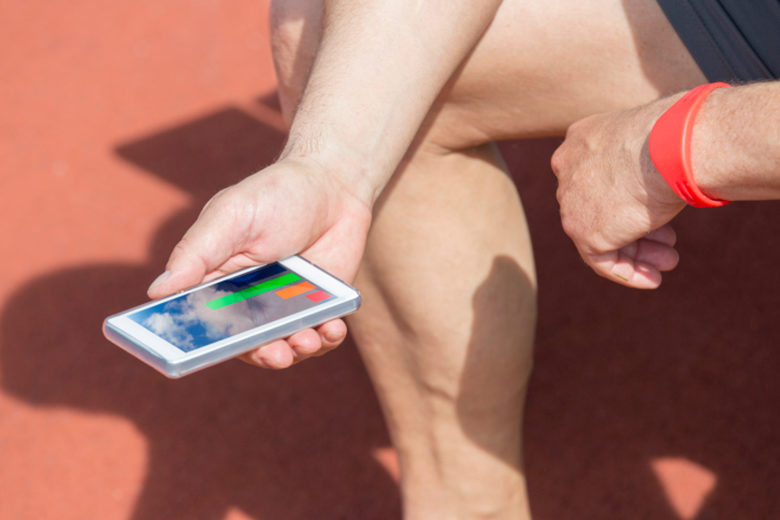
I love my fitness tracker! While price points still can be high, with some high-end models selling for over $100, studies say that these products are expected to continue growing in popularity into 2017. And, they are popular for good reason.
Aficionados of certain sports such as swimming, rowing, weightlifting or cycling may feel frustrated because some products count steps, and their preferred activities are not "counted" by the technology. But many dietitians and their clients rave about the beneficial addition of fitness trackers to their routines. ![]()
Wearing a fitness tracking device that counts steps can be a fun way to create community and accountability through friendly competition with friends and family. Many realize how very little they walk throughout the day and find the reminder motivating. Others love how trackers show how many calories to burn, resting heart rates and sleep goals. Whether you love fitness trackers or hate the trend, here are five ways they can help you or your clients live healthier.
They Get You Off Your Chair
Many fitness trackers use 10,000 steps per day as a goal, even providing a satisfying vibration alert when you meet it. While not part of official health guidelines, 10,000 steps equals about 5 miles of walking. So, if you're at 5,000 steps for the day, a quick look at your wrist will show it's time to climb the stairs, take a walk around the block, or march in place on a phone call. You'll be surprised how fast you can rack up the steps.
They Let You Compete with Your Friends
I share my daily stats with many of my clients. Not only do they notice if I have a 20,000-step day, they try to match (or beat) me. But instead of a fierce rivalry, this is a friendly competition and full of encouragement. Each day, I know there are folks I care about watching me, so I take more steps. Building a network makes an easy and fun way to get more out of the fitness tracker experience.
They Help You Sleep Way Better
Think you're getting enough sleep? Some fitness trackers can reveal that you're getting much less than you thought, and give encouragement to get to bed earlier for a full seven to eight hours of sleep. Please note, no fitness tracker knows if you're really asleep or not (they can only track movement). They do not accurately track sleep for everyone, but still can be a useful tool for many.
They Can Track Your Diet … if You Want Them To
There is a great body of research that shows tracking diet can help with weight loss and maintenance. If you choose to do so, and your device allows it, you can simplify your life by journaling both movement and food intake on one tracker app, without having to log onto another device.
They Hold You Accountable
If you feel your tracker is accurate, it holds you accountable. For instance, I had a 3,500-step day yesterday (I was working from home). I'm not happy with it, but at least I know that it happened and I can take the steps to improve.





